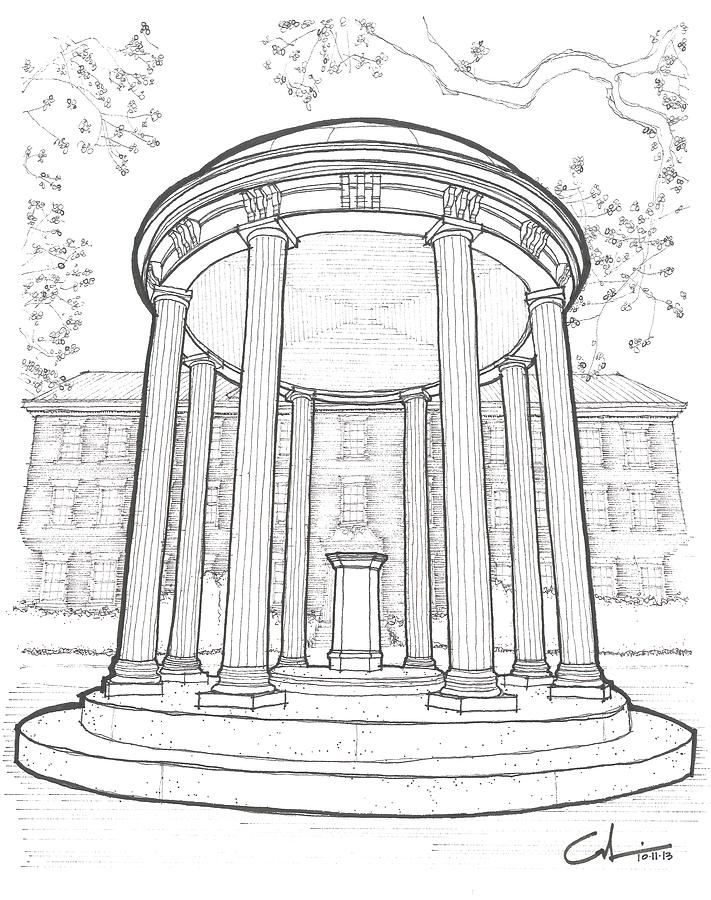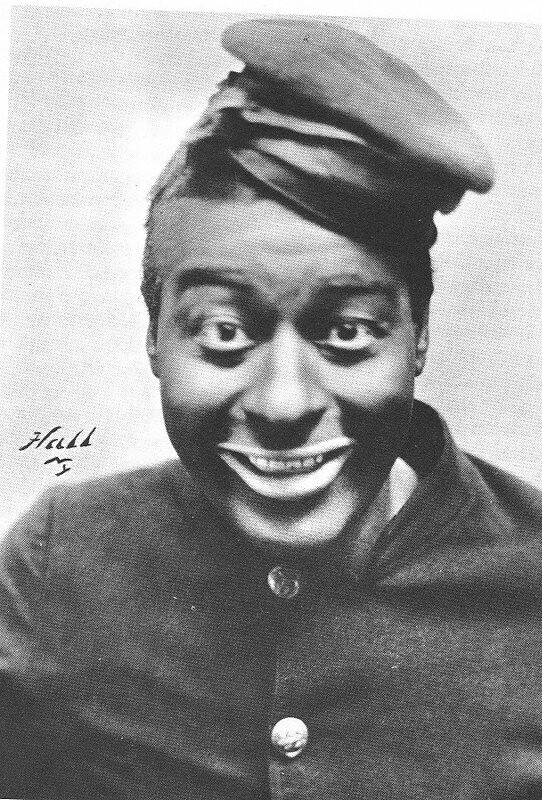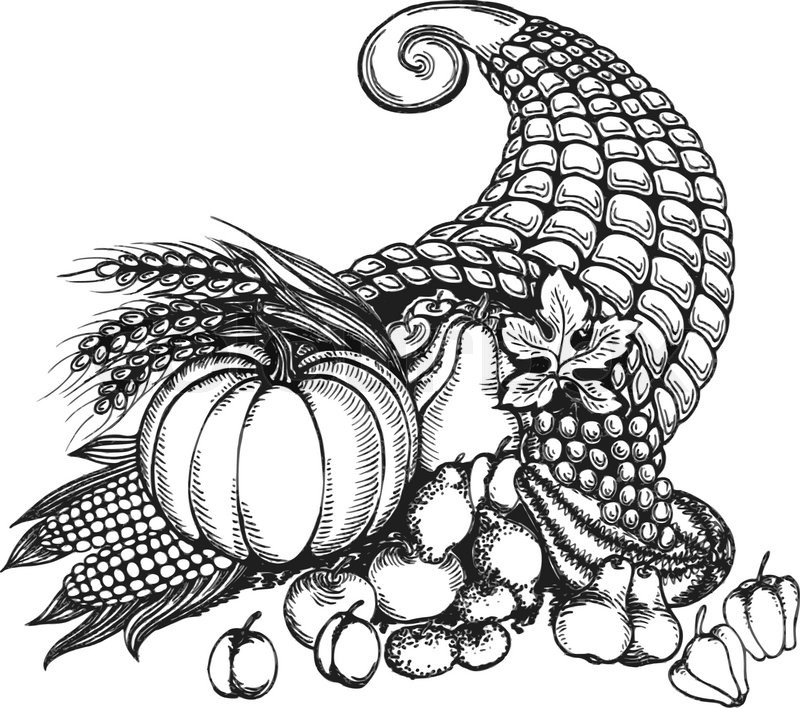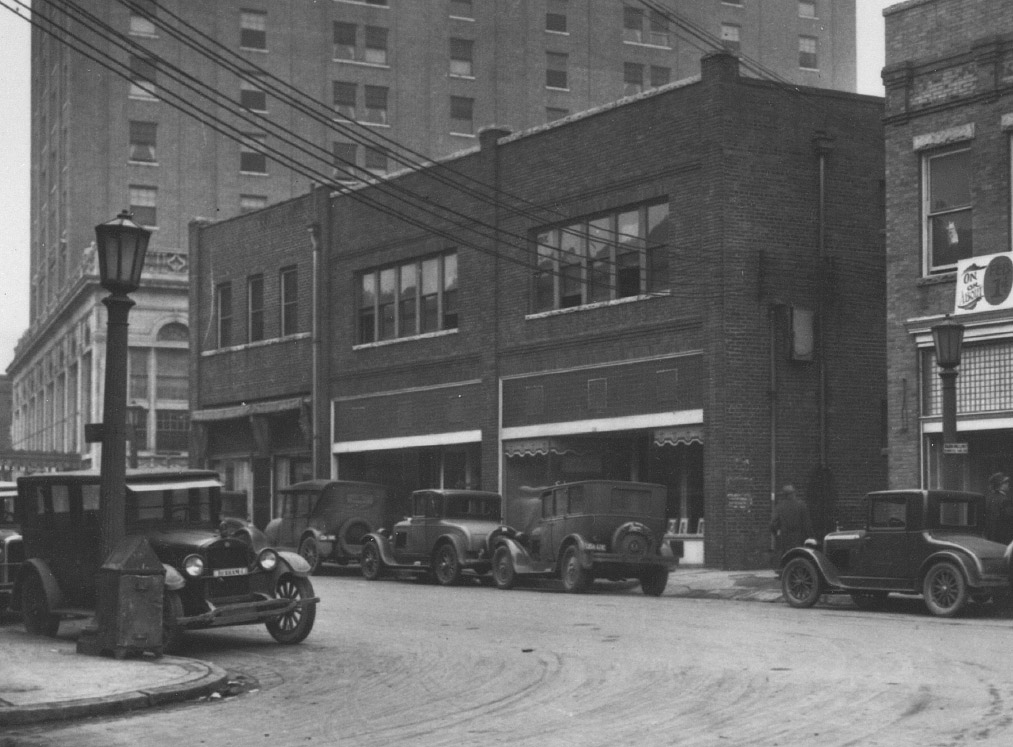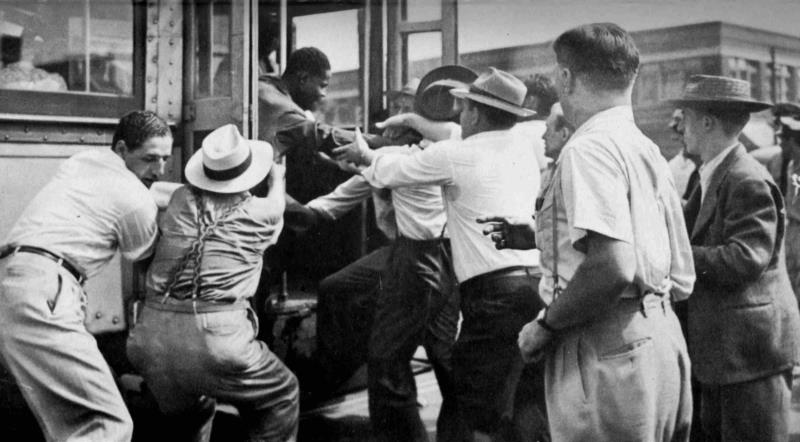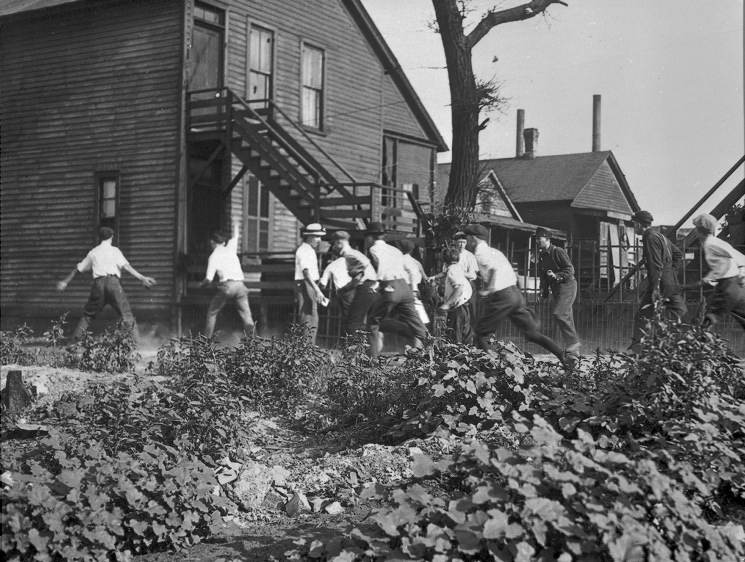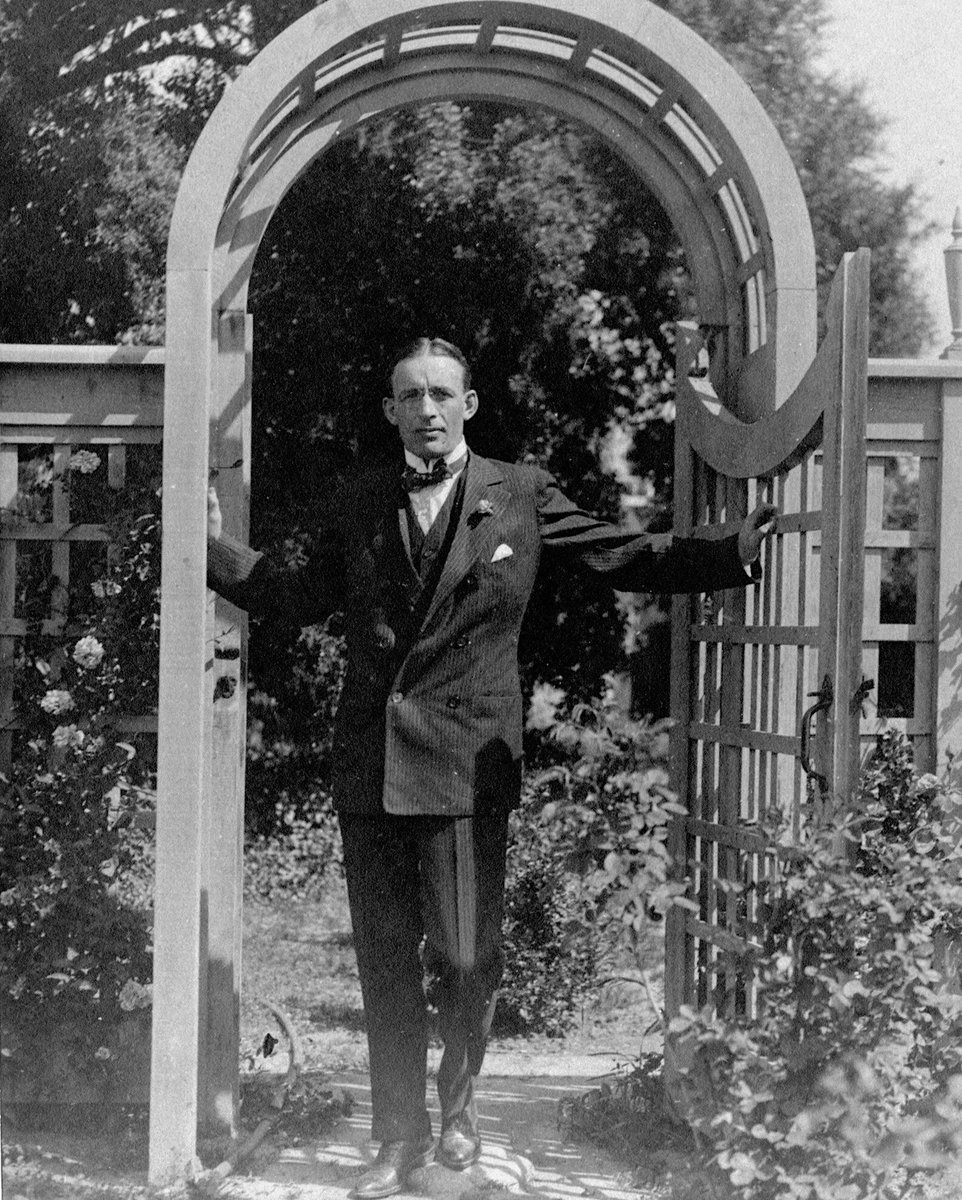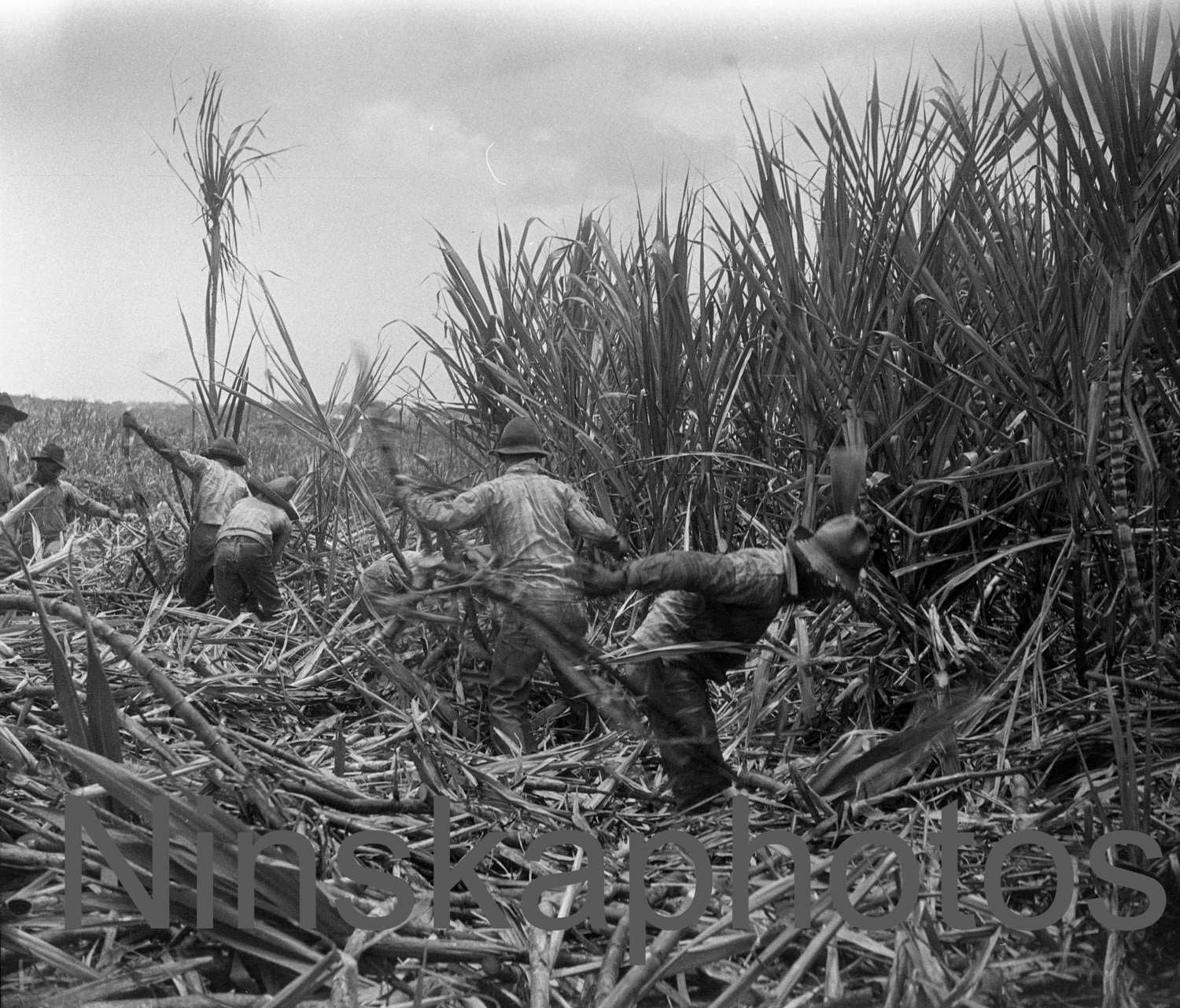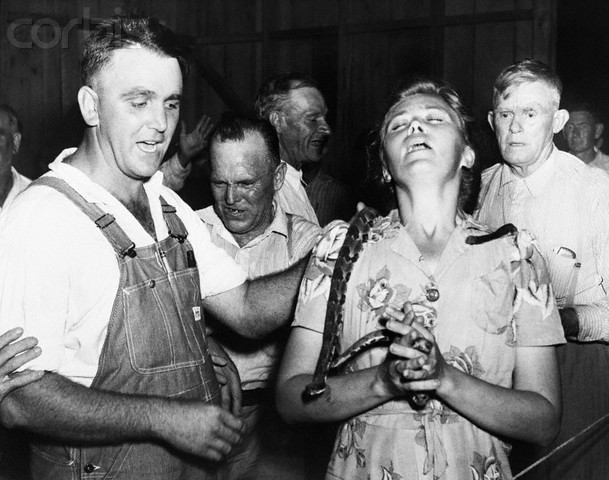Do We Hark the Sound or All Hail? The Real Rutherford-Chesterfield Story
The wedding party of Rachel Chesterfield at her first wedding, held in the Second AFC Church of Metropolis (1918)
War has a way of bringing people together. Strangers become friends, people from opposite ends of the Earth become enemies, and all in an environment where life is on the line every single day. This is made especially apparent by the First World War, aka the Great Patriotic War in Carolina. Armies from the farthest reaches of the Earth were summoned to fight for the glory of their nations. Many found something or someone along the way that changed them forever. One excellent example of this is the story of Jesse Rutherford and Rachel Chesterfield. To examine it more closely, we must first learn the backgrounds of these two individuals.
Jesse Rutherford was born on March 4th, 1892, to Ezekiel and Elizabeth Rutherford in Columbusburg, Polk County, North Carolina. Jesse was the youngest of 7 children, having 3 brothers and 3 sisters. He was born of pure Scottish stock, and his ancestors were the powerful borderlanders the Clan Rutherford. The Rutherfords were the largest extended family in Polk County, and had a colorful history encompassing war heroes, bootleggers, sheriffs, and an ongoing family feud with the Dunlap clan. Jesse grew up in an idyllic environment, going to a little white schoolhouse 6 days a week and then heading home to work on the farm. However, the family feud would loom increasingly large over the young man as he got older. When he was 16, the Dunlaps killed his favorite cousin, Dick Rutherford, after a property line dispute escalated. Jesse killed Bobby Dunlap, a school rival of his, in retaliation. He was never prosecuted for this crime, and his father rewarded him with a bottle of moonshine and a couple expensive Yankee cigars. The feud simmered down for awhile afterwards, and Jesse busied himself with helping out on the farm to take over for his ailing father and "wife-shopping." He was fairly popular with the local girls, and he had his pick of the crop. However, when Carolina marched to war, the 19 year old joined his brothers in beating their ploughshares into rifles, and joined the Army.
Rachel Chesterfield was born on April 2nd, 1891, in Metropolis, New Canaan, to Abraham and Vera Chesterfield. Abraham was of pure Anglo-Saxon New Englander stock, and Vera was a Dutch immigrant. They lived on a humongous 15,000 acre commercial farm on the outskirts of Metropolis, which had been built off a 500 acre grant given to Abraham for his service in ORRA during the Immolation. Abe was extremely proud of his farm and family, calling both "
The fruits of holiness given to my Chosen line by the hand of Jehovah." Rachel would be the oldest sister in a family that would grow to feature 13 children, 7 girls and 6 boys. Her family had some... interesting dynamics at play. Her mother, Vera, missed life in New York City and fell into heavy alcoholism, sometimes consuming a whole case of Republica on bad days. This created a great deal of emotional distance between her and the rest of the family. Abraham, for his part, was a frequent cocaine user and serial philanderer, fathering 4 illegitimate children with various unmarried women. This led to plenty of epic fighting, and both husband and wife would get physical, albeit rarely. Despite her father's problems, Rachel worshipped him as a nigh all-powerful provider. In fact, her only disciplinary citation from her school days came when she was 6 years old, and defamed President Lincoln by insisting "
He can't be Strong Abe cuz my Daddy is the Strongest Abe since Bible times!" The expression grew more mature, but the sentiment remained unaltered. For his part, Abraham adored his daughter and called her "
The purest and most beautiful expression of my Fluids." He also increasingly put her in a position of prominence and authority in the house as she became older. By the time she was 16, Rachel had basically supplanted her mother, setting rules for her siblings, consulting with her father on decisions great and small, putting him to bed after cocaine benders, and even taking her mother's place on his arm at formal events as Vera's alcoholism worsened. The strangeness of this relationship didn't escape notice in the family, and her siblings often sarcastically remarked "
I don't understand why Mr. and Mrs. Chesterfield keep letting Vera drink in their house." The real Mrs. Chesterfield increasingly resented Rachel, and the feeling was mutual. Of course, Abe always sided with Rachel when the two fought, further entrenching her position as the real woman of the house. When Rachel graduated high school in 1909, she applied and was admitted to Benedict Arnold University of Metropolis. Her father bought her a brand new Colonel Ford as a gift so she could commute to and from school. Rachel studied history there, which further affirmed her belief that her father was "
a real Strong Man," and modeled for the school's 1909 and 1910 Pinnacle Woman Beauty Pageant. Every contestant had to submit a photo shoot for the contest, and her father put a picture of her as "
The Pinnacle Cowgirl of New Canaan" on his desk. She won in 1910 thanks to her "
hazel eyes, womanly figure, and the height I got from my Daddy" as she put it in her diary. She wasn't wrong, as her figure, intimidating 6'0" stature, and piercing eyes made quite an impression on the hordes of suitors she had to fend off, some quite literally. In the fall of 1911, Rachel was excelling in her Junior year studies and preparing to enter the 1911 Pinnacle Woman Beauty Pageant when President Custer announced America's entrance into the First World War.
Rachel Chesterfield as the Pinnacle Cowgirl of New Canaan (1910)
Jesse Rutherford in uniform with his dog Spot (1911)
Abraham Chesterfield in his garden (1906)
Jesse was first sent to the East Carolina front, where he performed heroically, winning the Medal of Bravery for saving his squad from a Europan ambush. After about a year on the front, Jesse volunteered for the 8th Carolinian Ulsterman Battalion and was shipped out to Scotland on December 3rd, 1912. He arrived in Scotland on the 10th, and was quickly sent into the meat grinder of Northern Ireland. He survived several improbable charges against the enemy, and then won the highest possible medal in Carolina, the Hero of the Confederation, Andy Jackson class, for holding the line against an oncoming wave of Irish while the visiting members of the Carolinian General Staff were evacuated from their trip to the front. He took 6 bullets, 4 in the arm and one in each leg. It earned him a trip to the Angel of Destiny Field Hospital on June 8th, 1913 as he was unable to march more than 10 miles. It was here, while recovering from his wounds, that Jesse Rutherford would meet his future bride.
Rachel had been sent to the Californian Front to tend to the Yankee and allied forces who were there eliminating the Bonapartists presence there. While working in the hospitals there, she developed something of a mild distaste for many of the patients, especially the foreign ones. Australians, Nipponese, and Yankee alike pursued her to the point of harassment, but the foreign ones were worse because "wooing a Yankee from the sons of the New Jerusalem" proved the "strength of their Fluids." Needless to say, she didn't like the attention. In November 1912, she was transferred to the Northern Ireland front and assigned to the Angel of Destiny field hospital. Working there was often a horror show, but at least most of those poor souls were too weak to try and grab at her, not that a fair number of Englishmen didn't try. Then, on June 8th, 1913, she was assigned to care for one Jesse Rutherford.
She came to his bed expecting to dislike him. She had never met a Cokie, but she assumed that they were just as perverted as any other foreigner, who were just slightly worse than many of her countrymen. To her surprise, Jesse was extremely polite, never referring to her as anything other than ma'am. He retained the attitudes of his countrymen towards women, which while often hypocritical or unfair, were at least nowhere near as aggressive as the Yankee Pinnacle Fluid ideology. Over the coming days, Rachel and Jesse built a wonderful rapport, albeit one that was not yet romantic. He would always crack jokes with her, and played her tunes on the harmonica his father got him before he left. Her reports on his conduct and recovery were glowing, and as a reward for his bravery, Jesse was granted a transfer from the front to help guard the base where the hospital was located after he recovered. By July 5th he was up and at em on guard duty. On his first day as a guard, Jesse decided to bring Rachel a sandwich from the mess on his lunch break as he knew she rarely had time to get food herself. He walked into the hospital and was horrified to see her being groped by a patient. Setting the food down, Jesse calmly walked over and punched the offender square in the face with such force that several teeth came flying out. Then, like nothing happened, he brought Rachel her sandwich and then walked out to report the incident to the base's CO, Yankee Captain John Heisenberg. He managed to convince Captain Heisenberg that a guard should be stationed in the hospital "
To protect the persons and blood purity of the nurses," and to prevent a far more serious incident from occurring. After a few more beatdowns delivered by Jesse, the patients suddenly rediscovered their manners and stopped trying to grab at their caregivers. This was the turning point in his relationship with Rachel. Most of the nurses developed at least a small crush on their protector, but Rachel was different. Her admiration for the polite Cokie boy became a full blown infatuation, and she wrote to a friend back home "
Jesse is the most wonderful Strong Man I have ever met! If you met him Hannah, you would be swooning over him too." These words would prove oddly prophetic, but that's a discussion for later in the story. She also became increasingly possessive of Jesse and on more than one occasion had serious verbal sparring matches with other nurses over him. For his part, Jesse had always had a crush on Rachel since his time as her patient, and these feelings boiled over during an evening stroll after dinner on August 3rd, 1913. They kissed under a full moon, and Jesse gave Rachel a letter for her father. It read: "
To Mr. Abraham Chesterfield of New Canaan. My name is Jesse Rutherford of Polk County, North Carolina. I'm writing you this letter sir, that I might have your permission to court your daughter. She is the purest and most wonderful woman I have ever met, and I wish to pursue her with the intent to marry. Please respond at your earliest convenience. Sincerely, Corporal Jesse Rutherford, 8th Carolinian Ulsterman Battalion."
To say that Abe was unhappy was an understatement. He fully intended for Rachel to come home from the War, settle down with a local boy, and continue to help him run the household. A paramour from thousands of miles away was certainly not in the cards, especially not "
One of those god-damned redneck Cokies." He was writing a letter forbidding Jesse from ever speaking to his daughter again when help for the young lovers came from a surprising source: Vera Chesterfield. While it seems highly probable that her motivation was to re-establish herself as the woman of the house and get rid of her daughter, she did still stick up for Rachel, and threatened to divorce Abe if he wouldn't let the couple be, something that would cause tremendous embarrassment. He relented, and sent a terse two word reply: "
Permission granted." The couple was elated at the reply, even if they rightly knew trouble waited at home. After all, Jesse's folks also weren't terribly thrilled at the thought of their son marrying some "
uppity Yankee broad." Throughout the coursthip, Jesse gave her little gifts and took her on old-fashioned, chivalrous dates like picnics. When he was sent back to the front in March of 1914 after an unexpectedly brutal Irish charge left the front lines dangerously weak, the couple exchanged hundreds of letters until a ceasefire was called. They were joyously reunited in October, and by November 3rd they were on their way back home. They boarded the
RUS Ben Franklin and headed back with thousands of other Yankees and Cokies to their port of call in Savannah. 4 days into the voyage, Jesse Rutherford got down on bended knee and asked Rachel Chesterfield to marry him. Unbeknownst to her, he had bought a small engagement ring in Edinburgh. She enthusiastically said yes, and the happy couple was congratulated by thousands of their fellow passengers.
When the couple disembarked, both of their families were eager to greet them. The Rutherfords ran from the East entrance, while the Chesterfields practically stampeded towards them from the West. When both families came within spitting distance of the couple, they stopped in their tracks to stare at Rachel, who was holding up her engagement ring for the whole world to see. Both families stared for several moments, glassy eyed and slack jawed with horror before they turned to stare at each other. Then, the yelling started, prompting Port Authority officials to approach the bellicose crowd with batons drawn. After being escorted out of the port by the authorities, the newly engaged couple sat down at some picnic tables with their family for what can only be described as several hours of torture. Abraham asked his daughter, "
Pray tell, did a piece of shrapnel hit you and destroy your ability to make reasoned decisions?" For his part, Jesse got to witness the sight of his sister Jeanine tackling Rachel's sister Delilah, and that was before his momma laid into him for "
Foolin around with that dumbass Yankee girl." Vera just drank and cackled. This chaos continued until Abraham threatened to murder Rachel for, "
being a disobedient retard and a disgrace!" This caused Rachel to burst out in a fresh wave of sobs and cower behind Jesse as it appeared a beating was imminent, until her fiance pulled out his sidearm and fired a shot in the air. Jesse didn't say a word, but stood there between father and daughter with a trembling hand on his gun. The strange fire in his eyes restored order, albeit order based in tremendous fear. Jesse's sisters would recall that it was unlike a look any of them had ever seen before. However, his father, his brothers, and Rachel's father all recognized it from their time in the military. It was, to quote Ezekiel's diary "
The look of a man one wrong word away from snappin. Last time I saw a look like that, I watched a Virtueman kill 12 people." Jesse calmly grabbed his future father-in-law, who was a good 8 inches taller than him, by the collar and said "
Sir, if you ever threaten or demean my fiancee again, with God as my witness I will beat you to death with my bare hands in broad daylight. Now, please apologize to her so this unpleasantness may cease." Terrified and coming down hard off of a cocaine high, Abraham apologized to a member of his family for the first and last time. The moment was another turning point in Rachel's relationship with her father and deepened her infatuation with Jesse, as she later wrote "
For the first time I saw my father for who he really was; a tyrant, like the Bonapartes. I would have happily lived under his thumb forever if it hadn't been for my Jesse. I still remember him forcing that apology out of Daddy. I could feel the power of his Fluids vibrating off of him. It was the most awe-inspiring thing I've ever seen." Jesse then spoke to the police who responded to the gunshot with a ridiculous lie about it being a demonstration for his family, but no one dared to turn against him in his agitated state. After the cops left, Jesse declared that they weren't leaving until a solid plan had been created for the nuptials. Rachel wanted to finish her degree at BAUM, and Jesse thought this was a splendid idea in a move that his family found surprising. She had enough credit hours that she could apply for a year long fast track program for returning vets to finish their degree. After graduation, the family would hold two weddings, one in Columbusburg, and one in Metropolis, after the families failed to compromise on a middle of the road location. It was expensive, but it was the only way, and both families had the funds to afford it. With that settled, the two families parted ways for the time being.
Jesse spent his year apart from his beloved Rachel working on the family farm and doing odd jobs to save money. His family attempted to set him up with some old sweethearts to get him to break the engagement, and got some very choice words for their troubles. Every moment not spent working was spent writing to or thinking about Rachel. He also began planning a honeymoon trip to East Carolina and the Virgin Islands, using his savings from the Army. For her part, Rachel was hard at work studying. She still lived with her family, but tensions between her and her father remained high. Abe tried to smooth things over several times, but always in ways that were somewhat condescending. Rachel wound up accidentally repairing her relationship with her mother as a result of this, albeit to a limited extent. Her father got BAUM's resident big man on campus Harald Aaronson to try and seduce her away from Jesse, which resulted in Harald getting a particularly nasty kick to the testicles. Once she leaned of her father's role in the incident, she gave him a resounding punch in the face. Abe didn't dare retaliate with more than a mild slap, as for all of his airs of Strong Man attitude, he still shivered with fear at the memory of Jesse's wild eyed threat. On December 22nd, 1915, Rachel Chesterfield graduated with honors from BAUM. Her beaming fiance scooped her up and twirled her around, which looked somewhat comedic given the fact Rachel was 2 inches taller than him. Anticipation began building as planning started for the big day(s).
On May 1st, 1916, Jesse Rutherford and Rachel Chesterfield were married in the Second American Fundamentalist Church of Metropolis under the eye of the youthful and vigorous Pastor Hezekiah Larsen, aged 23. The marriage ceremony was followed by a 70 minute service that the Carolinians, including Jesse, found utterly terrifying. Spirits were slain, demons exorcised, and a distant cousin of Rachel's fell convulsing and foaming at the mouth after a massive dose of peyote, which allegedly gave her a vision of the Angel of Destiny blessing the union. It was so intense that the Carolinians could almost forget the presence of black people among their Yankee compatriots. No racist incidents occurred, and nasty remarks were even suppressed after Jesse made it clear that "
Anyone who embarrasses me tonight will find that I'm gonna Take a Little Trip to their room and Tell Em Hello." The reception dinner was a traditional Yankee affair that put everyone at ease. Rachel and Abraham even put aside their differences to enjoy a very tender father-daughter dance. The immediate aftermath of the reception, however, saw two dramatic developments. Firstly, Vera Chesterfield initiated an affair with Pastor Larsen, one that would continue for 8 years and likely saw Larsen father her late in life twins. In a similar vein, Rachel's maid of honor, Hannah Olsen, the same Hannah whose letter was quoted previously, attempted to seduce Jesse before he left to spend the night with his bride. He got away from her and informed Rachel of what happened. Hannah chased after him, and was greeted with an extremely violent beating at the hands of her former best friend. Jesse had to literally drag Rachel off of Hannah so as to stop his beloved from seriously or even fatally injuring her maid of honor. Afterwards, Hannah was quietly removed from the guest list to the second wedding in Columbusburg, and her spot as maid of honor was given to Rachel's sister Mary Lou.
The second wedding in Columbusburg on June 2nd went off fairly well. Jesse and Rachel were married by his grandfather, Old Man Rutherford, in the First Presbyterian Church of Columbusburg, founded by the Rutherfords in 1770. The ceremony was much more understated than the Yankee one, and there was a notable absence of snake-handling or rabid hallucinations by distant relatives. The reception dinner, however, was extremely wild. Rachel's family watched in amazement as massive containers of bootleg moonshine were brought out alongside heaping platters of pulled pork and were mildly alarmed by the amount of celebratory gunfire that erupted throughout the evening, making the massive party sound like a small war was being waged in a field in Columbusburg. Dancing went on late into the night, and eventually the betrothed couple stumbled to their marital bed absolutely hammered on illegal corn liquor. A send-off party had been planned for the following morning, but given how everyone over the age of 10 was violently hungover, it was decided that a quite goodbye and a small cash gift for the couple to upgrade their train seats to a nicer and quieter car would be best. The couple boarded the train to Charleston that night and slept on the way there. From there, they boarded the
CLS Island Paradise run by the Pan-Carolinian Cruise Company and departed for a month long cruise that covered the Florida Keys, Virgin Islands, and East Carolina. While they were there, Jesse learned of a scheme to settle Cokie veterans there. As a decorated veteran, he was eligible for additional awards, and after some debate the couple applied for a land grant of 1,000 acres of prime sugar land. Their application was approved, and the couple arrived in Charleston just in time to receive the telegram. They settled down on the plantation and built it into a 5,000 acre cash cow. Rachel bore Jesse 5 children, 3 girls and 2 boys, true Cokies all. They agreed to raise their children in the Presbyterian Church, but Rachel managed to inject a not-insignificant amount of Spiritual Marxism and Social Darwinism into their beliefs. Although culture clash and arguments occurred, they were, by all accounts, madly in love with each other until the day they died. All of their neighbors, friends, and even some members of their families, acknowledged that they were the happiest married couple any of them ever knew. This quintessential love story would end with the two dying of old age in bed together within hours of one another. They were buried in a custom "couple's coffin" where they could remain together even after death and their funeral was attended by over 120 mourners who had been touched by this strange, beautiful couple. Their story is real proof that love can conquer all.
Laborers at work on the Rutherford Plantation in East Carolina
First Presbyterian Church in Columbusburg, North Carolina, one week before the wedding
Rachel's cousin Naomi receives her vision of the Angel of Destiny during the post-wedding service in Metropolis
Jesse's brothers, father, and Uncle John Boy pose for a picture at the reception drinking illegal corn liquor. The picture would be used as evidence in a moonshining trial in 1920 that would be dismissed after a bottle of it wound up on the judge's desk.



